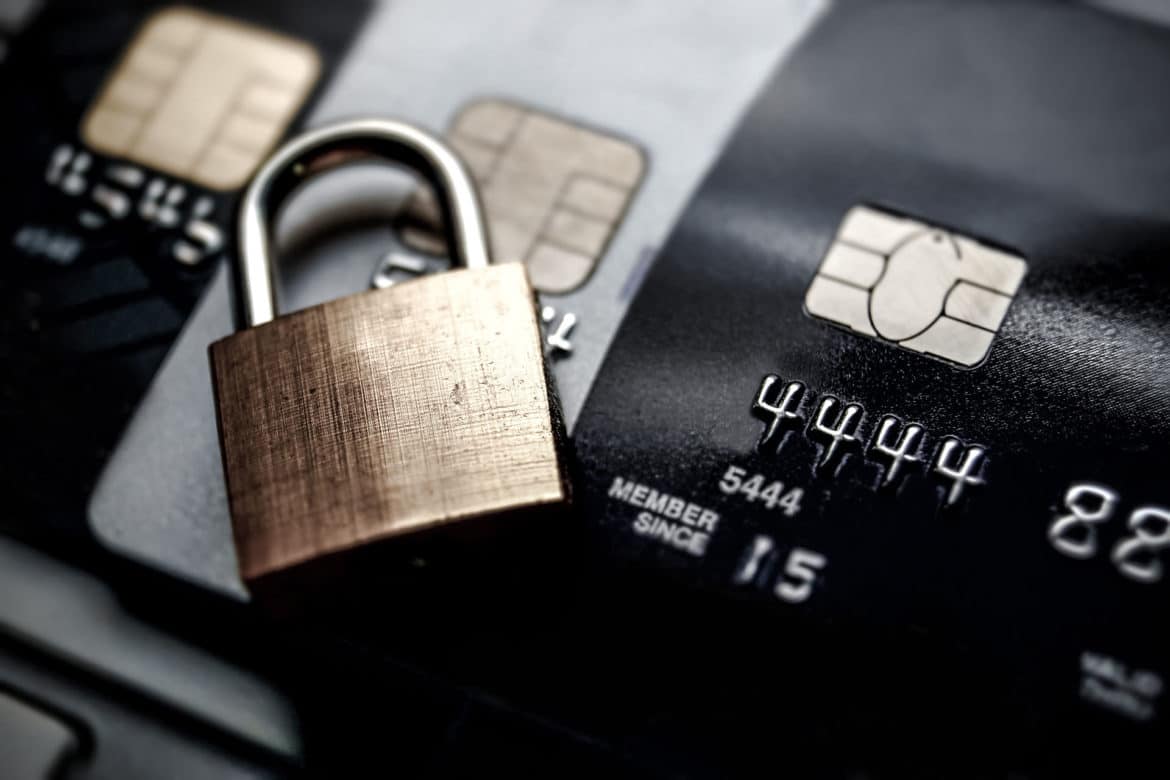How to Use a Secured Credit Card to Build Credit
Secured credit cards can be a fast track to better credit—but only if you use them the right way. Whether you're starting from scratch or trying to bounce back after some financial missteps, a secured credit card can help you build credit when other options are off the table. But simply having one isn’t enough. You need to know how to use it strategically.

This guide will show you exactly how to use a secured credit card to build your credit score the smart way—without falling into common traps that can hold you back.
What Is a Secured Credit Card?
A secured credit card works like a regular credit card, but there’s one key difference: you have to put down a refundable deposit to open the account. That deposit usually becomes your credit limit. If you put down $300, your limit will likely be $300.
Unlike prepaid debit cards, secured credit cards report your activity to the major credit bureaus—Experian, TransUnion, and Equifax. That means your payment habits and balance levels can help you build your credit score over time.
Secured cards are designed for people who either don’t have a credit history or have poor credit. If you’ve been denied for a traditional unsecured card, a secured card can be a solid alternative to get your credit back on track.
How a Secured Credit Card Can Help Build Credit
Used the right way, a secured credit card can give you the positive credit history you need to improve your credit score. Here's how it works behind the scenes.
Reports to Major Credit Bureaus
Most secured credit card issuers report your monthly activity to all three major credit bureaus. That includes your payment history, your balance, and whether you're using the card responsibly. These details are what credit scoring models like FICO and VantageScore use to calculate your credit score.
If your goal is to build credit, you want to make sure the card you’re using actually sends data to all three credit bureaus. Otherwise, your efforts may not move the needle where it counts.
Credit Score Factors a Secured Card Affects
A secured credit card can influence several parts of your credit score:
- Payment history – This is the biggest factor in your credit score. Making every payment on time helps build a positive track record.
- Credit utilization – This measures how much of your credit limit you're using. Keeping your balance low shows you're not overextending yourself.
- Age of accounts – Over time, your secured card can contribute to the length of your credit history, especially if you keep it open after upgrading to an unsecured card.
- Credit mix – Having different types of accounts (like a secured card and an installment loan) can help your credit score slightly, but it's a smaller factor.
When managed correctly, a secured credit card checks the right boxes to help you build or rebuild your credit profile.
How to Use a Secured Credit Card Effectively
Getting approved is just step one. The real progress comes from how you use the card every month. Here’s what to focus on to make sure your secured credit card is actually helping your credit score.
Always Pay On Time
Your payment history makes up the largest share of your credit score, so it’s not optional—every payment needs to be on time.
- Set up autopay: Schedule automatic payments for at least the minimum due to avoid slipping up.
- Use reminders: Add calendar alerts or text reminders a few days before your due date.
- Never miss a payment: Just one late payment can stay on your credit report for up to seven years and drag down your credit score.
Keep Balances Low (Under 10–30%)
Credit utilization is the percentage of your credit limit you're using. If your limit is $300 and you charge $150, your utilization is 50%—and that’s higher than you want.
- Stay below 30%: Under 30% is generally considered good, but under 10% is better.
- $0 isn’t always ideal: While paying your balance down to zero won’t hurt your credit score, keeping a small balance that gets paid in full each month shows active, responsible use. Just don’t leave a balance thinking it helps—it doesn’t.
Use the Card Every Month
You don’t need to put everything on your secured card, but you should use it consistently.
- Set a recurring charge: Add a small subscription or regular bill to the card—Netflix, Spotify, or gas all work.
- Avoid inactivity: If you stop using the card completely, the issuer might close it, which can reduce your available credit and shorten your credit history.
Don’t Max It Out—Even Temporarily
Charging up to your full credit limit, even if you pay it off before the due date, can still hurt your credit score.
That’s because credit utilization is typically measured based on your statement balance—not whether you paid it in full afterward. If your limit is $300 and your statement shows a $295 balance, your score could take a hit.
Pay in Full Each Month
Secured credit cards often come with high interest rates, and there’s no benefit to carrying a balance.
- Avoid interest: Paying your full balance each month keeps your card from costing you anything beyond the initial deposit.
- Credit building doesn’t require debt: You don’t need to carry a balance to build credit. Just use the card regularly and pay it off in full.

Common Mistakes to Avoid
Even with good intentions, it’s easy to make small mistakes that can slow down your credit-building progress. Here are some to watch out for:
- Opening multiple secured cards at once: This can make it harder to manage payments and may trigger too many hard inquiries on your credit report.
- Carrying a balance thinking it helps: This is one of the biggest myths. Carrying a balance just means you’re paying interest for no reason.
- Missing or forgetting to make a payment: Late payments hurt your credit score and can stick around for years.
- Closing the account too soon: Closing a secured credit card right after improving your score can reduce your average account age and available credit—both of which may lower your score.
How Long Does It Take to See Credit Improvement?
With consistent use, most people see their credit score start to move within a few months—but it won’t happen overnight.
- 3 to 6 months is typical: If you’re starting with no credit or rebuilding from bad credit, expect to see some progress within this range.
- It depends on your full credit profile: The speed of improvement also depends on your other credit accounts, any negative marks, and how much debt you have overall.
- Track your score regularly: Use tools like Credit Karma or free credit score updates from your card issuer. For the most accurate view, check your credit report from Experian, TransUnion, and Equifax at least once a year.
The key is consistency. Keep your habits in check and the results will follow.
When to Graduate to an Unsecured Card
You don’t need to keep a secured credit card forever. Once your credit has improved, it may be time to move up to a traditional unsecured card with better perks, lower fees, and a higher credit limit. But timing matters. Here’s how to know when you’re ready—and how to make the switch.
Signs You’re Ready
Before applying for an unsecured credit card or asking for an upgrade, make sure you’ve checked these boxes:
- On-time payments for 6–12 months: A solid history of consistent, on-time payments is one of the clearest signals that you're managing credit well.
- Low credit utilization: Keeping your balance below 30%—ideally under 10%—shows that you’re not relying heavily on your credit limit.
If you've been using your secured card responsibly and your credit score has improved, you're in a good position to level up.
How to Request an Upgrade or Apply Elsewhere
There are two main ways to move from a secured card to an unsecured one:
- Ask your issuer for an upgrade: Many card issuers allow you to “graduate” to an unsecured version of the card after showing responsible use. If approved, you may get your deposit back and keep your account open—preserving your credit history.
- Apply for a new unsecured card: If your issuer doesn’t offer upgrades, you can apply for a traditional credit card from a different provider. Use your improved credit score to qualify for better terms and higher limits.
Either way, don’t close your secured card right away unless you absolutely have to. Keeping the account open helps your credit score by maintaining your credit history and available credit.
Best Secured Credit Cards for Building Credit
Below are five of the best secured credit cards available today, offering low fees, helpful features, and the chance to strengthen your credit over time.
1. Current Build Credit Card
The Current Build Credit Card is a flexible tool for building credit without the typical hurdles. There’s no credit check, no interest, and no required security deposit. You simply set your spending limit by moving money into your account, ensuring you can’t spend beyond your means.
Current reports to the major credit bureaus, helping you establish positive credit history. You can also earn rewards at over 14,000 participating merchants. Additional perks include early direct deposit, fee-free overdraft protection, and mobile banking, making it an excellent all-around financial tool.
- APR: None
- Intro APR: None
- Annual Fee: $0
- Security Deposit: No minimum required
2. Step Visa Card
The Step Visa Card is a secured credit card built for teens and young adults who want to begin building credit responsibly. There’s no credit check, no interest, and no traditional deposit required. Instead, it links to your Step account so you only spend what you’ve deposited.
Step reports your activity to the credit bureaus, helping you start your credit history. The card also offers rewards on everyday purchases, making it a smart choice for first-time credit builders.
- APR: None
- Intro APR: None
- Annual Fee: $0
- Security Deposit: No minimum required
3. Chime Credit Builder Secured Visa® Credit Card
The Chime Credit Builder Secured Visa® Credit Card offers an easy way to build credit while maintaining full control over your spending. There’s no credit check, no interest charges, and no minimum deposit required.
Your spending limit depends on how much you move into your secured account. Chime reports your payments to all three major credit bureaus, helping you build strong credit habits. There are no annual fees or hidden costs, making it one of the simplest options on the market.
- APR: None
- Intro APR: None
- Annual Fee: $0
- Security Deposit: No minimum required
4. Discover it® Secured Credit Card
The Discover it® Secured Credit Card is one of the few secured cards that offers cash-back rewards. You’ll earn 2% cash back at gas stations and restaurants (up to $1,000 in combined purchases per quarter) and 1% on all other purchases.
Discover reports to all three major credit bureaus, helping you build a strong credit history. Plus, Discover automatically reviews your account starting at seven months to see if you qualify for an upgrade to an unsecured card. There are no annual fees, and you’ll even get a free FICO® credit score each month.
- APR: 28.24% (Variable)
- Intro APR: None
- Annual Fee: $0
- Security Deposit: $200 minimum
5. Capital One Platinum Secured Credit Card
The Capital One Platinum Secured Credit Card offers a flexible deposit structure, starting as low as $49 depending on your credit profile. It reports to all three major credit bureaus, giving you a pathway to better credit.
There are no hidden fees or foreign transaction fees, and you’ll have access to useful tools like automatic credit line reviews. Responsible use may lead to an unsecured credit line with continued on-time payments.
- APR: 30.74% (Variable)
- Intro APR: None
- Annual Fee: $0
- Security Deposit: $49, $99, or $200 (based on creditworthiness)
Final Thoughts
A secured credit card is one of the most effective tools for building credit from the ground up. But the card itself won’t do the work—you have to use it responsibly.
Stick with it. Consistently paying on time, keeping your balance low, and using the card every month can all add up to a stronger credit score. It’s not about doing anything fancy. It’s about doing the basics well and doing them every single month.



